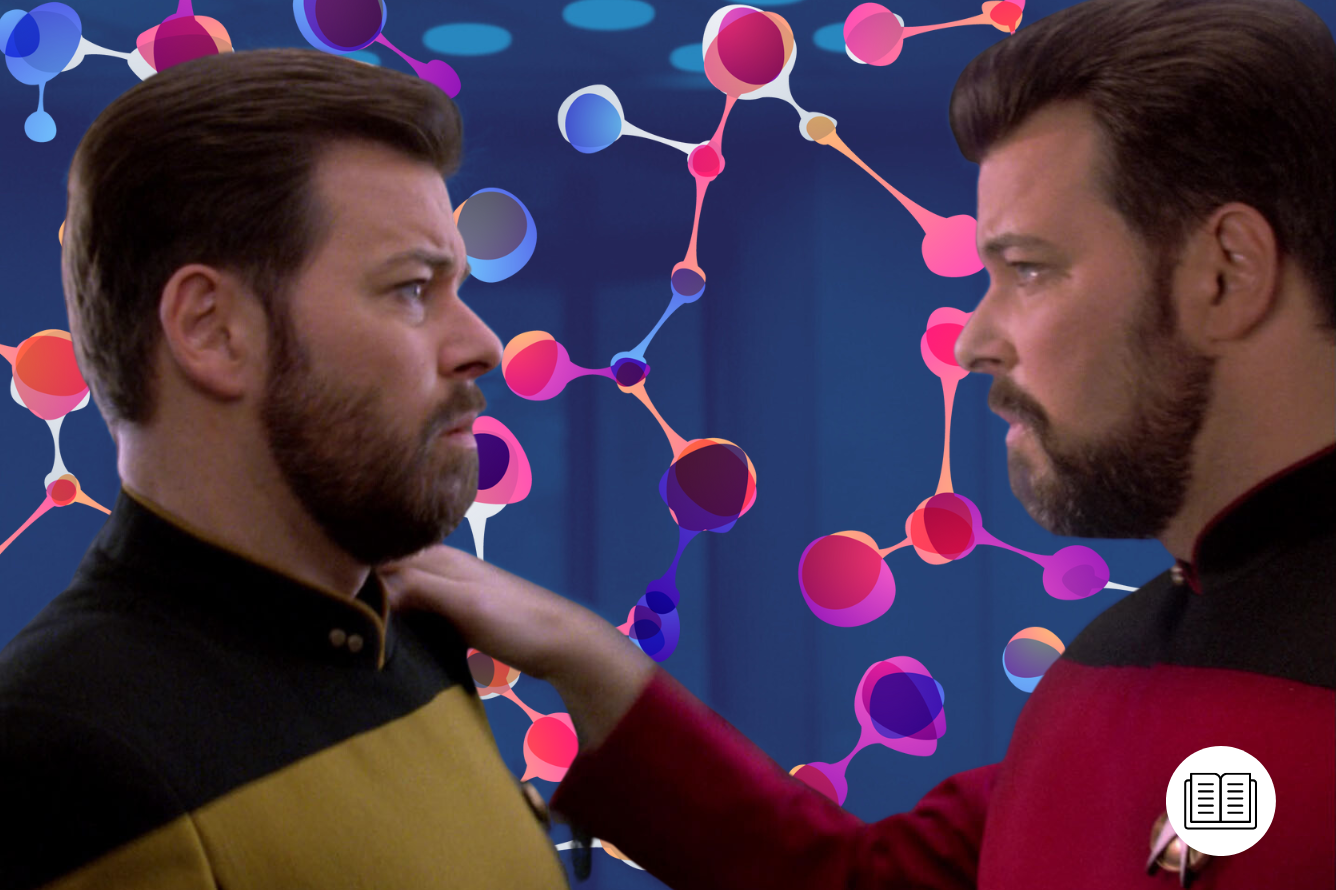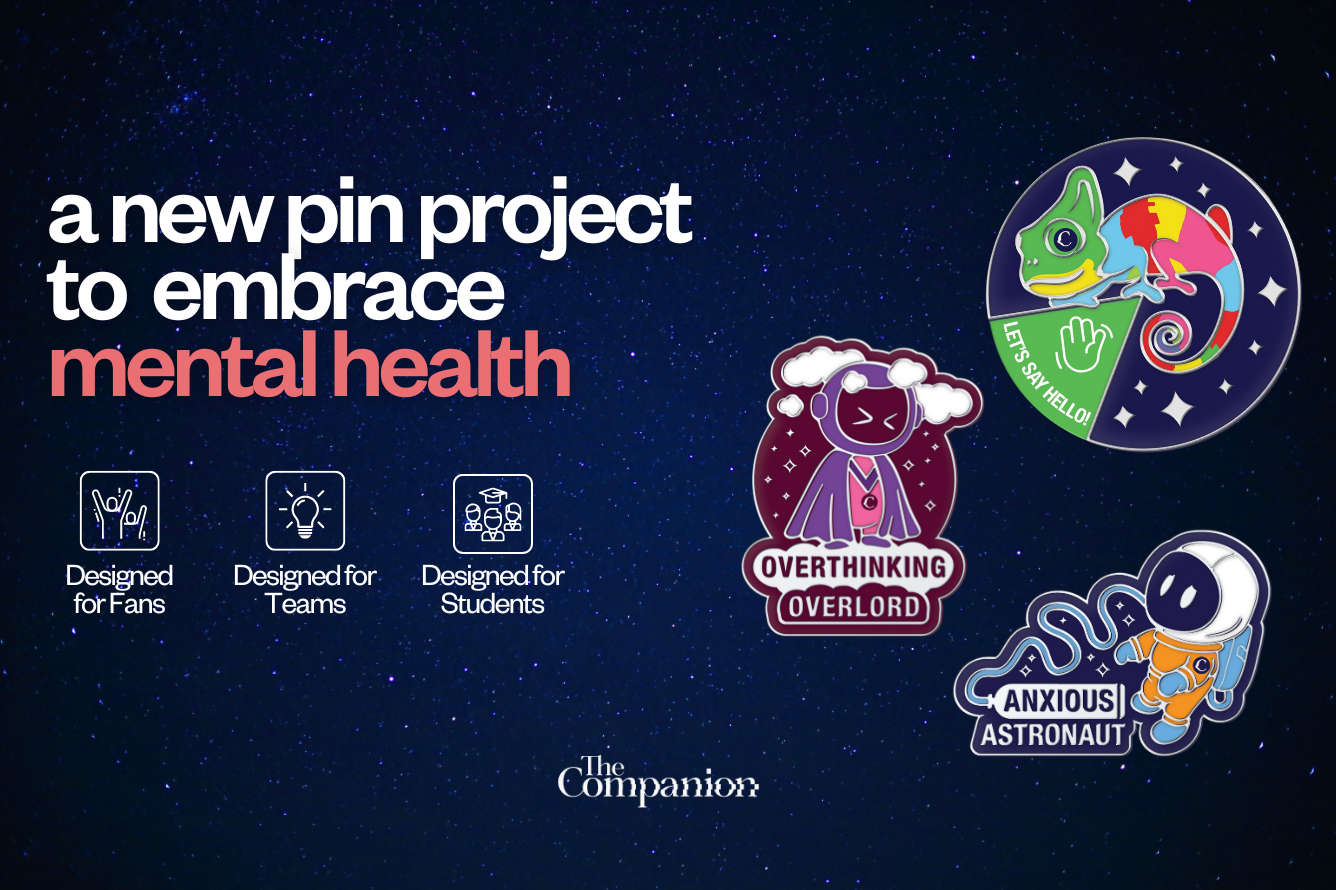Star Trek’s transporters are truly terrifying. If they’re not accidentally merging your personality and physiology with a mildly irritating work colleague, they’re fatally mangling your genetic code so horrifically that your own parents won’t be able to recognize your corpse. And yet, Geordi La Forge (LeVar Burton) insists that they’re the safest way to travel in the 23rd century. Given the large number of shuttle crashes that take place in the average season of any Star Trek show, he may well have a point.
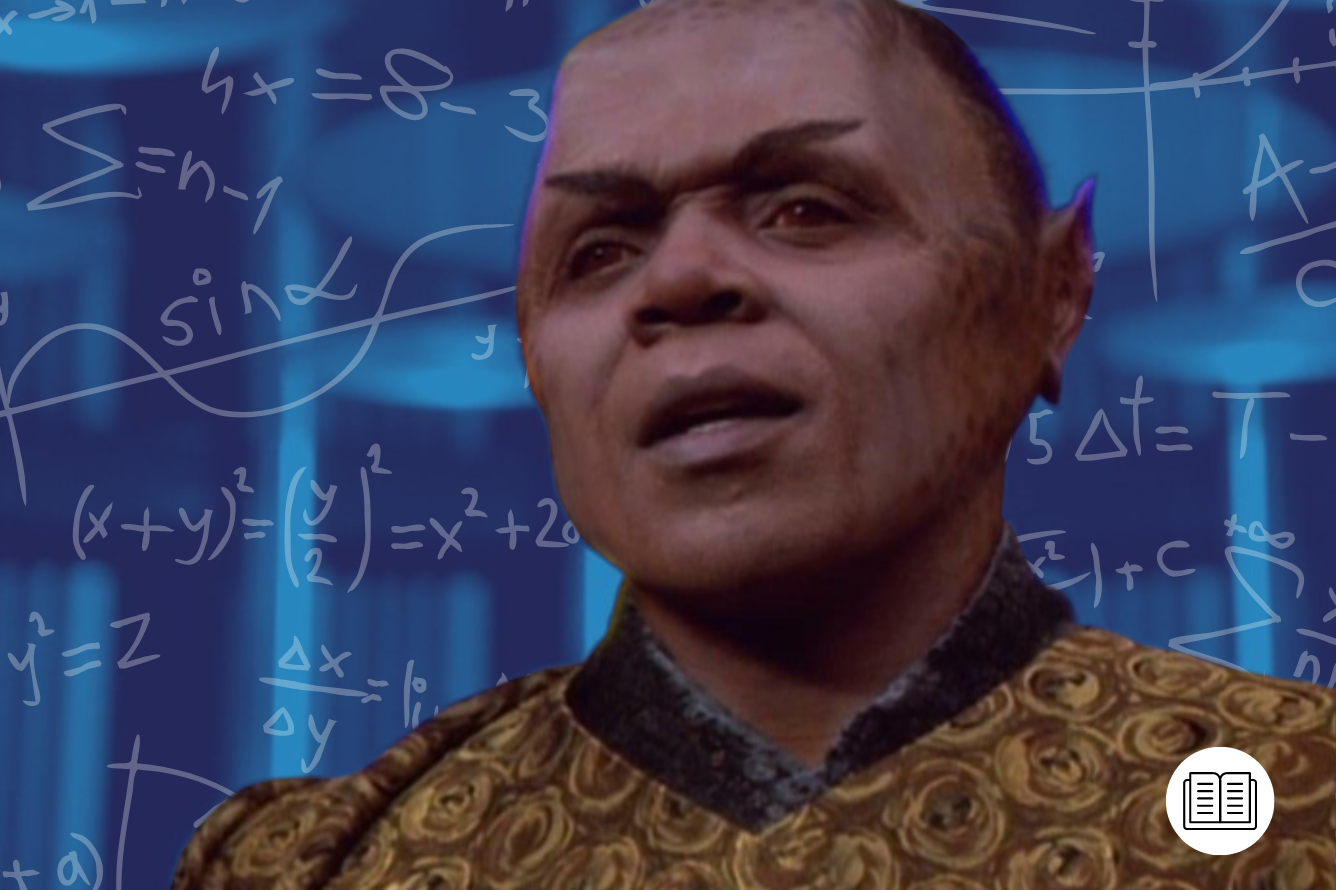
However, the most terrifying side-effect of the transporters is the theoretical possibility that, given the right – or wrong – circumstances, they can create an identical copy of someone. Star Trek has tackled this idea several times in its history, most notably with the character of Thomas Riker, introduced in the Star Trek: The Next Generation episode ‘Second Chances’ (S6, Ep24).
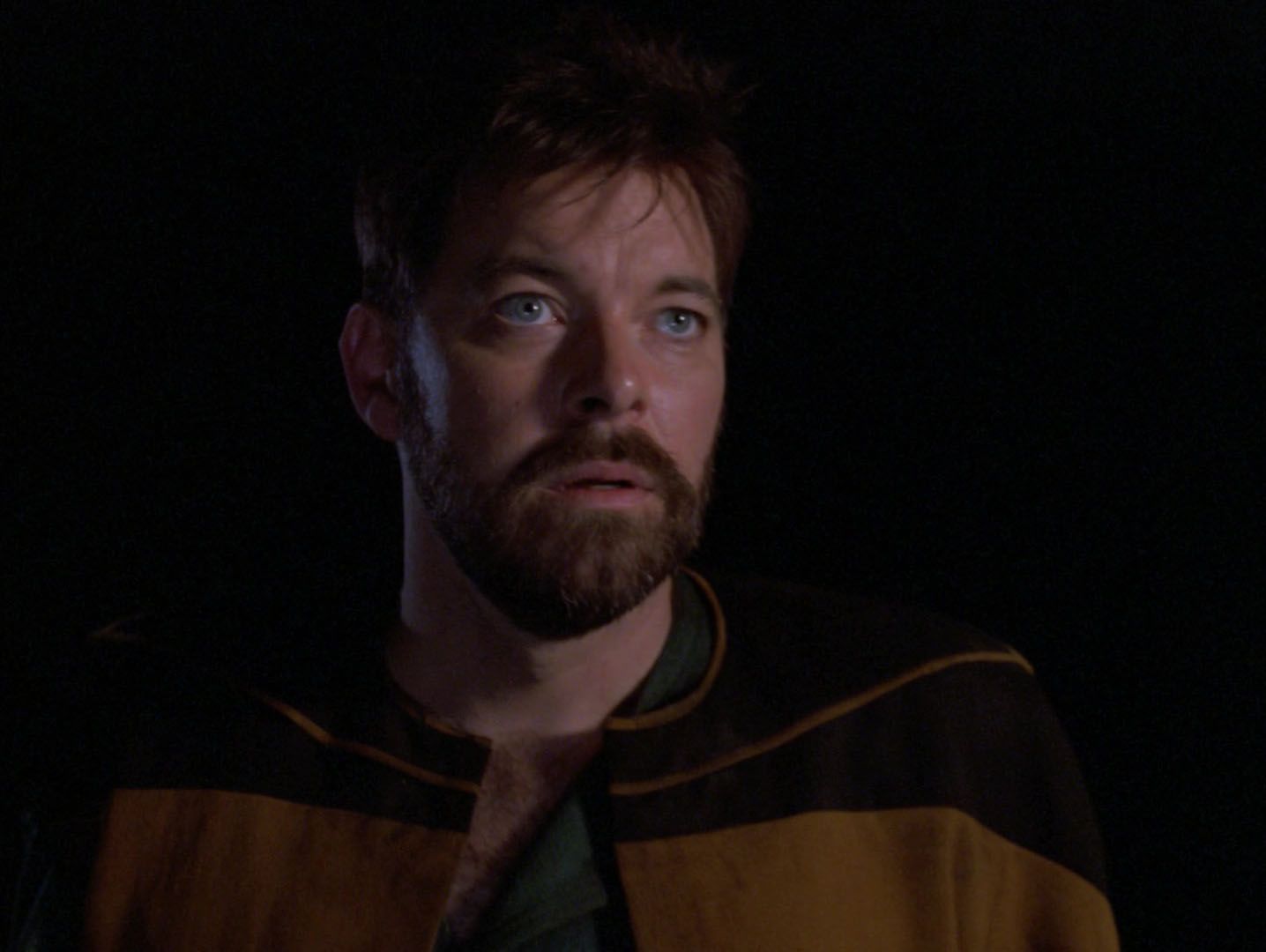
When the Enterprise returns to a planet it’s revealed that a young Will Riker was accidentally cloned when a transporter engineer attempted to rescue him from the planet Nervala IV. Due to atmospheric interference, the engineer attempted to improve his chances with a second transporter beam, which reflected back onto the planet’s surface, reconstituting an identical Riker.
In the interest of clarity, the Riker who has been a regular in TNG since Season 1 will be referred to as Will, while the one discovered on Nervala IV will be referred to as Thomas – the name he eventually adopts at the end of ‘Second Chances’. Obviously, both are played by Jonathan Frakes.

What’s fascinating about ‘Second Chances’ is that it never confirms exactly which Riker is the original version. Both men are biologically identical, and so neither can be classed as the definitive Will Riker. The only difference between Will and Thomas is how they’ve spent eight years since the transporter accident.
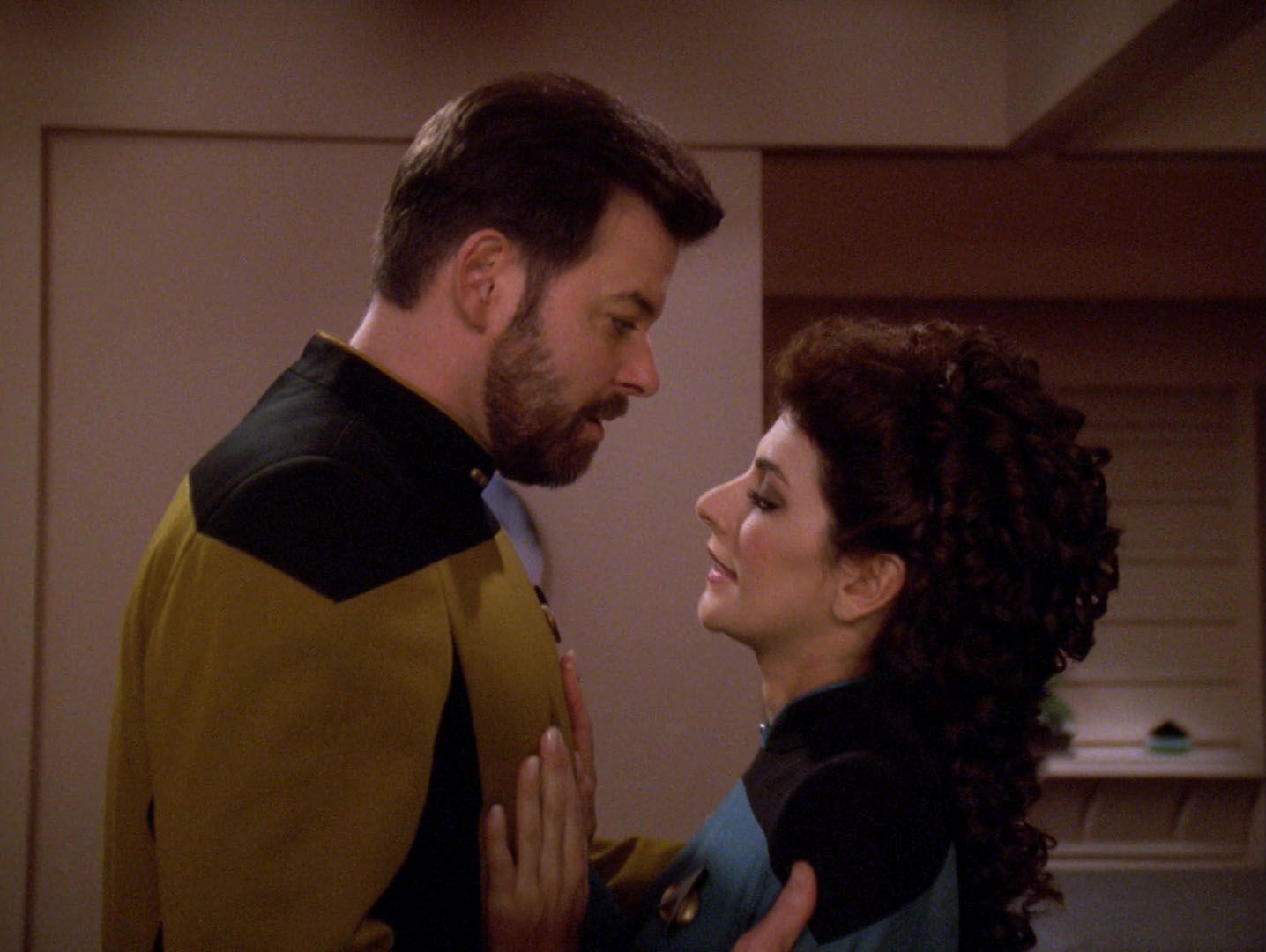
Thomas Riker has spent eight years alone on Nervala IV, dreaming of his last date with Deanna Troi (Marina Sirtis) and believing that he’s been presumed dead. Will Riker, meanwhile, was promoted for his bravery on Nervala IV and abandoned his romance with Deanna in pursuit of career advancement. When the two Rikers come face to face, it’s unsurprising that Thomas resents Will for his choices. To Thomas, Will is a usurping doppelganger who “always had a better hand…in everything.”
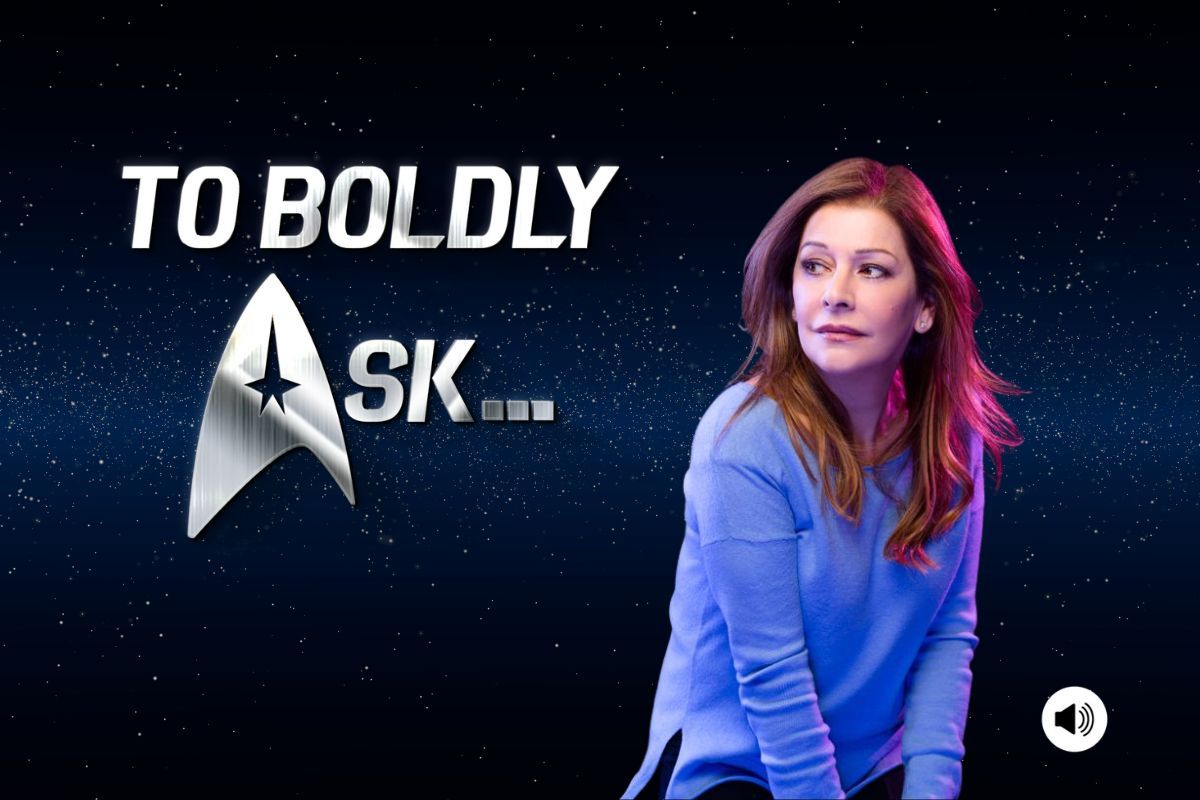
Dostoyevsky, Doppelgangers, and Deanna Troi
As a story about doppelgangers, ‘Second Chances’ follows in the tradition of Fyodor Dostoevsky’s The Double: A Petersburg Poem (1846). To Thomas Riker, Will must seem like Golyadkin Jr. in Dostoevsky’s novel – the more confident and charming doppelganger who slowly takes over the life of lowly bureaucrat Yakov Petrovich Golyadkin.
After (unknowingly) leaving Thomas Riker behind on Nervala IV, Will has advanced to being second-in-command of the Federation’s flagship, despite numerous offers of his own command roles. When Thomas and Will finally meet, the former can’t understand why Will rejected these offers. It’s as if the superior doppelganger has taken over Thomas’ life and squandered it. Will still doesn’t have his own command, and he’s no longer with Deanna. From the perspective of Thomas, Will has failed to live up to the life he had mapped out for himself.
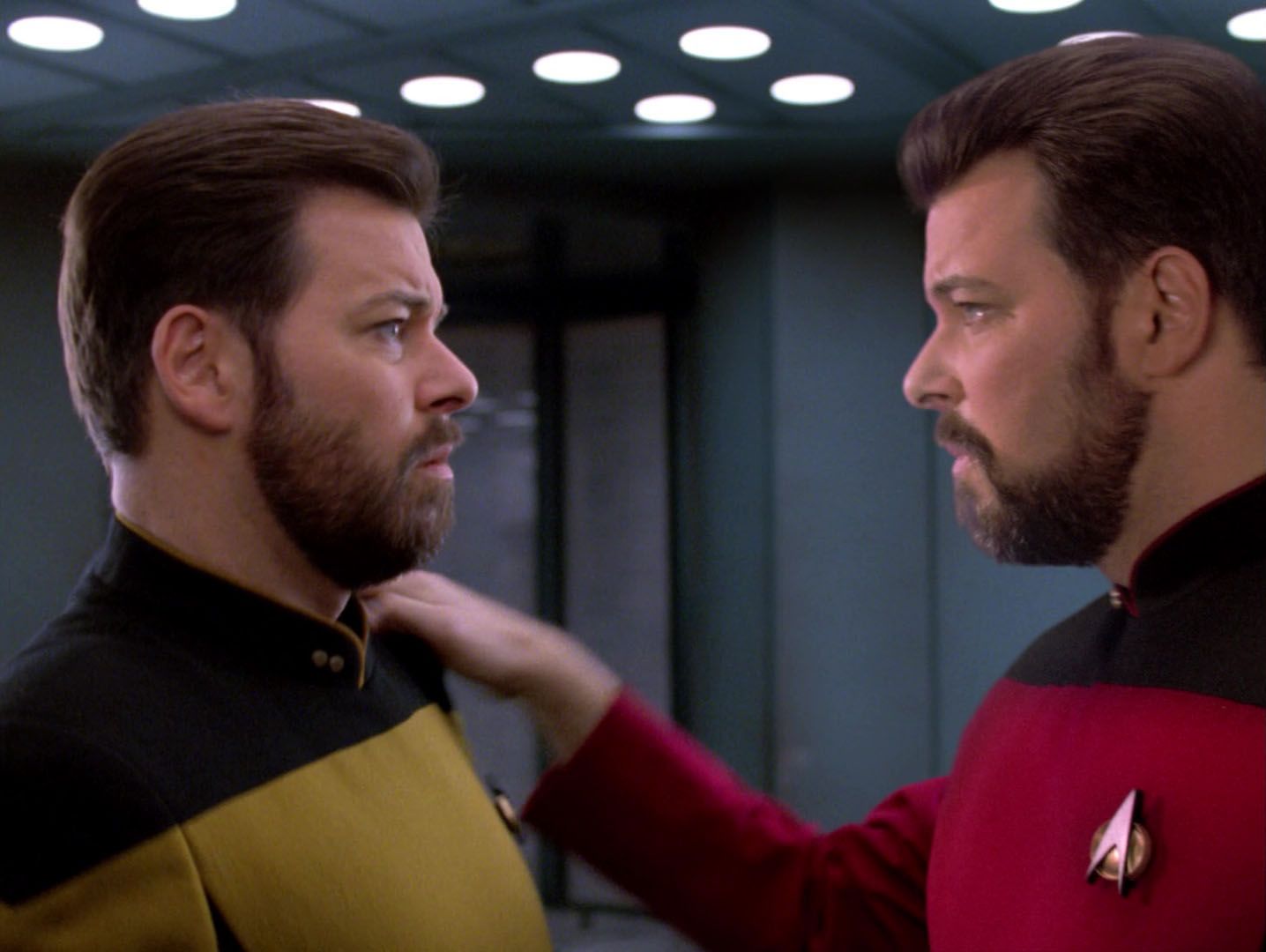
Now that he’s been rescued from Nervala IV, Thomas is keen to finally fulfill his ambitions, and sets up a romantic treasure hunt for Deanna, hoping to win her back. There’s an inferior version of ‘Second Chances’ where Will and Thomas fight for Deanna’s affection, but thankfully Thomas isn’t an evil clone that is setting out to take Will’s girl.
The most interesting thing about Deanna and Thomas’ courtship and Will’s response to it is rooted in the fact that both Rikers are technically the same man. For Deanna, Thomas represents the young and ambitious Starfleet officer she last saw at the Janaran Falls. Unlike Will, Thomas hasn’t been able to move past that last night with Deanna and even presents her with an etching of the falls he did while in isolation of Nervala IV.
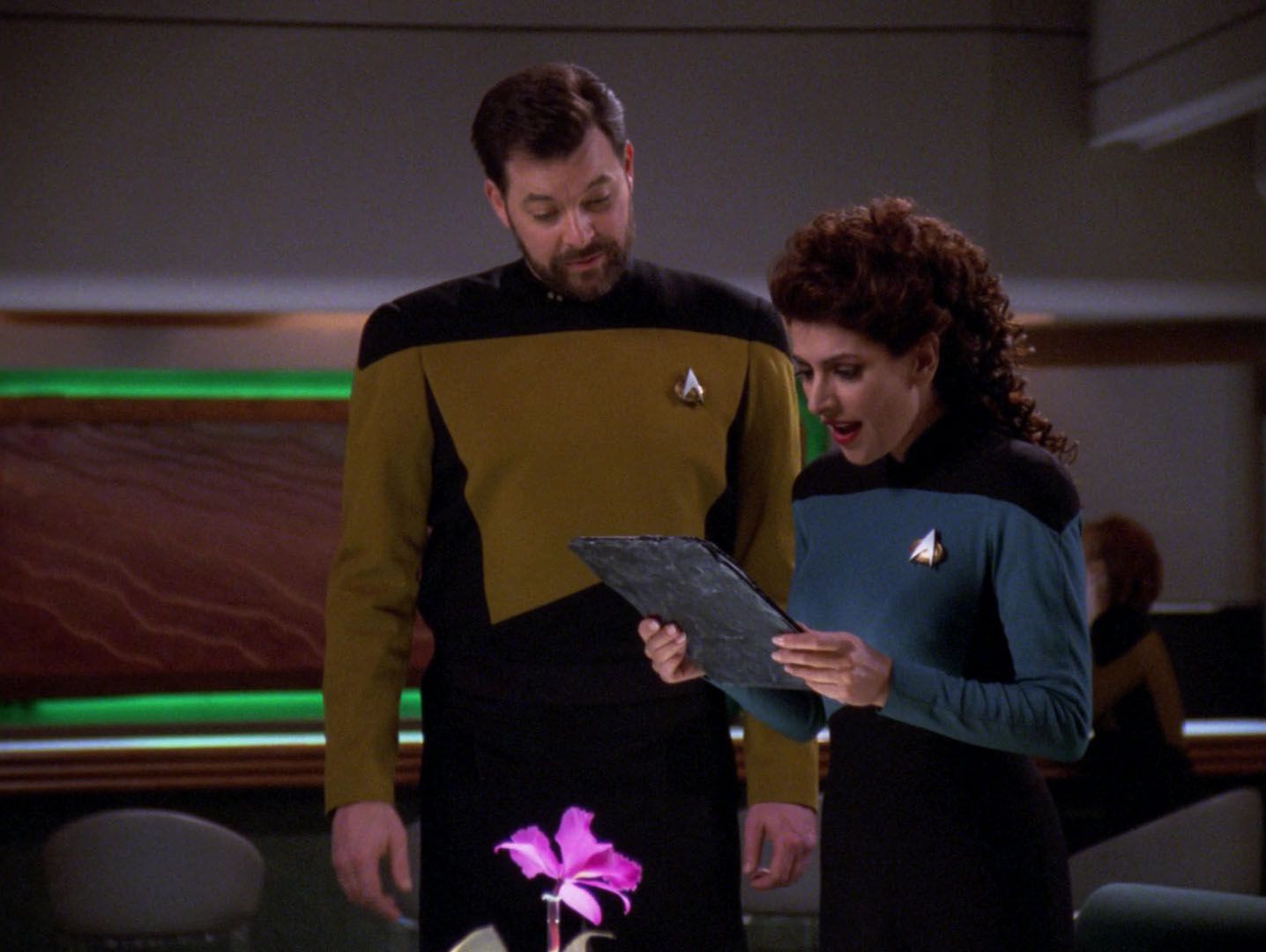
As romantic as it all is, there’s the nagging sense that this is the same man who ultimately made the decision not to meet Deanna again after the first six weeks of his tour on the Potemkin. It’s Will’s understanding of his own failings that makes him concerned about Deanna and Thomas’ romance, rather than the fact she’s seeing another man. She’s seeing the same flawed man, and he doesn’t want her to be hurt again.
Although his bravado prevents him from admitting it, Will clearly regrets his treatment of Deanna. It’s why the later TNG movies would bring the couple back together and give Will his own command – to show that the character has finally grown as a person. However, Will can see that Thomas is similarly incapable of balancing his romantic and professional lives and wishes to stop history from repeating itself.
It’s Deanna who ultimately realizes this and turns down Thomas’ offer to join her on his new posting to USS Ghandi. In being presented with a second chance in the form of Thomas, Deanna is finally given the agency to end their relationship on her own terms because she knows how the story will end. It’s a bittersweet moment, and it’s clear from Will and Thomas’ final interaction that they both know she’s made the right decision. It’s therefore abundantly clear that Will and Thomas don’t like each other because it’s only through each other that they can truly see their own flaws and mistakes.

William T. Riker, James T. Kirk, Self-Doubt, and Self-Loathing
This is emphasized in one of the best scenes in ‘Second Chances’ when Worf (Michael Dorn) and Data (Brent Spiner) are discussing how they would respond if confronted with an exact copy. Worf’s response likely resonates with many people in the audience and perfectly summarizes the conflict between Will and Thomas.
Data: I have found that humans value their uniqueness, that sense that they are different from everyone else. The existence of a double would preclude that feeling. Could that be the source of the friction?
Worf: Or perhaps it is more a matter of seeing something in your double. Something you do not like in yourself.
Worf has clearly picked up on the tension between the Rikers during the earlier poker scene. On the surface level, the poker game is a fun sci-fi conceit – what is it like to play cards with your doppelganger? Is it possible to bluff yourself? Are you able to recognize your own tell from an outside perspective?
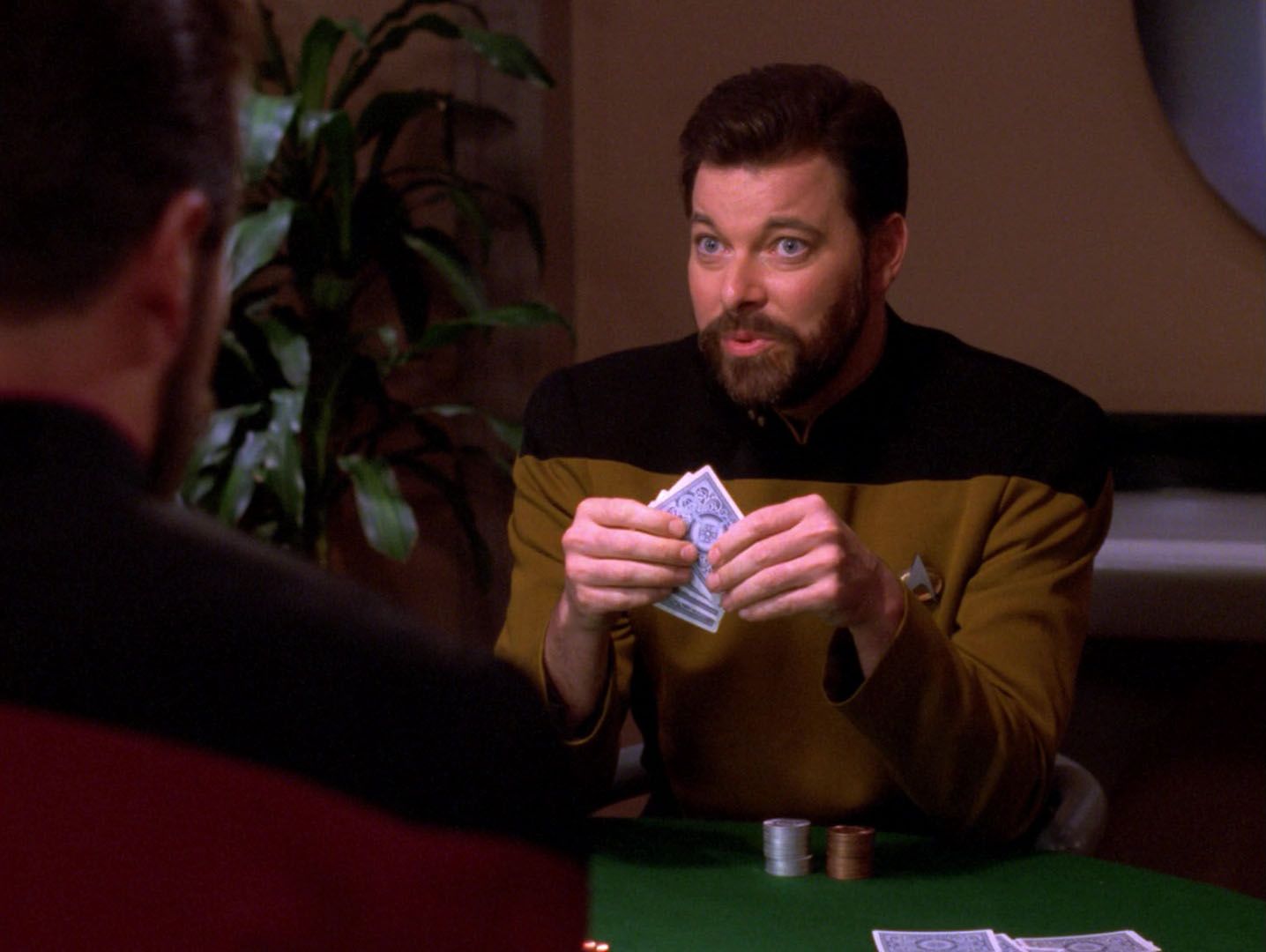
However, as the Klingon has observed, the not-so-subtle subtext of the card game is how Thomas Riker’s resentment of Will is at risk of bubbling over into contempt. In goading Will to take a risk and increase his bet, Thomas is accusing his double of playing it safe by remaining by Picard's side aboard Enterprise. In that moment, the dynamic between Will and Thomas shifts, and the latter finally succeeds in getting under the Enterprise commander's skin.
Sat opposite him at the poker table, Thomas Riker embodies that little dissenting voice of doubt inside Will's head. The voice that tells him that maybe he should have taken that posting on USS Hood, or Aries, maybe he should have broken away from the shadow of the legendary Captain Jean-Luc Picard (Patrick Stewart). By this point, Will has already proved himself to be a capable captain by leading Enterprise into battle against the Borg Collective at Wolf-359. However, assured of his decision he may be, it's clear that he still has doubts over his decision to stay in the role of Picard's Number One.
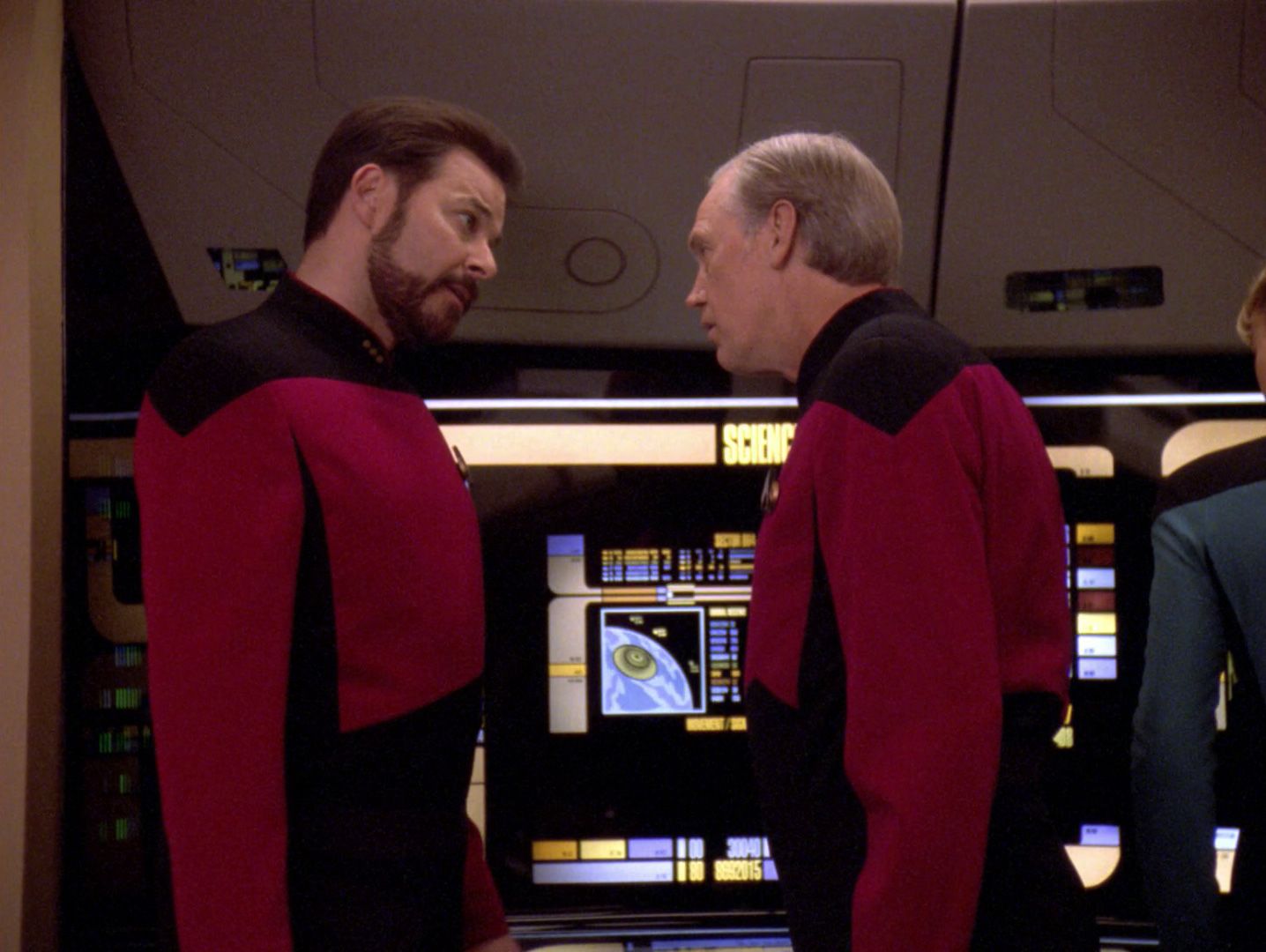
Earlier in TNG season 6, in the two-parter ‘Chain of Command’ (S6, Ep10-11), Will was put out when Edward Jellico assumed command of the Enterprise in Picard’s absence. The clash between both men resulted in Riker being suspended from duty, temporarily replaced by Data. At that point, with Picard’s fate unknown behind enemy lines in Cardassian space, Riker must surely have felt he’d made the wrong decision to stay with Enterprise, faced with the prospect of taking orders from a blowhard like Jellico. With those doubts dragged up again, it’s hardly surprising that Thomas’ goading about “playing it safe” hit a nerve with him.
It’s the ability of Thomas Riker to burrow into Will’s own doubts and reflect his own subconscious disappointment that makes the concept of the transporter clone so chilling. It's far more chilling than in The Original Series episode ‘Enemy Within’ (S1, Ep5) when a transporter clone split James T. Kirk (William Shanter) into two versions – one representing his id, the other his superego. Both Kirks represented his flaws, one was a violent sex maniac while the other was a cautious and meek man who lacked the confidence of a starship captain. Neither Kirk could live without the other and so they were eventually put back together in the transporter, presenting one whole Kirk.
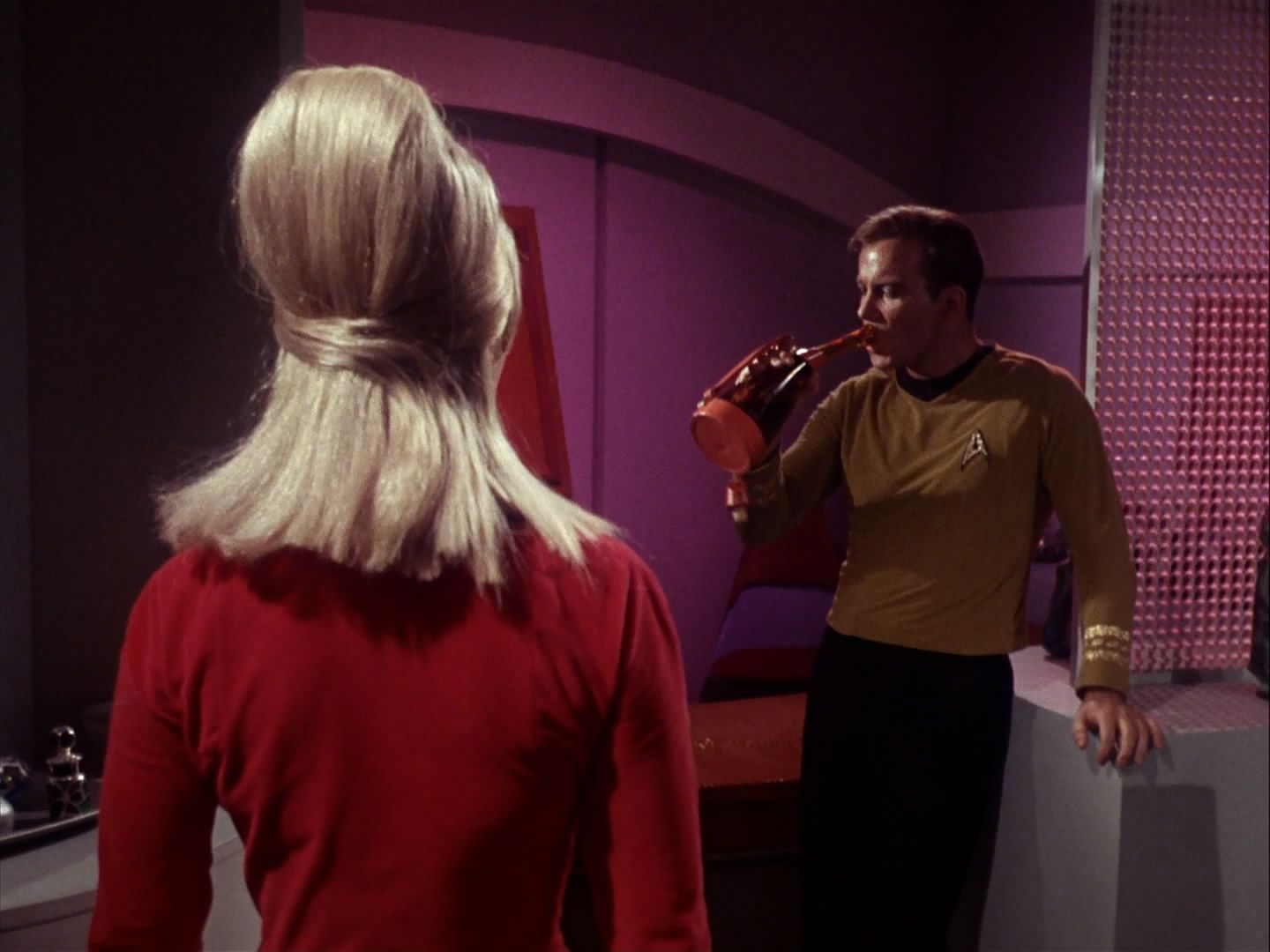
What’s interesting about that is that Kirk never really has to confront his flaws. The id sexually assaults Janice Rand (Grace Lee Whitney), and the slightly ashamed and embarrassed Kirk cruelly waves away her attempts to talk to him about it. Kirk doesn’t want to confront his failings, and he doesn’t have to, because the animalistic version of himself is safely stored back inside his subconscious. The Kirk that assaulted Janice is written off as an “evil” Kirk, rather than a representation of his darkest impulses. Unlike Will and Thomas, Kirk doesn’t have to live with the actions of his doppelganger.
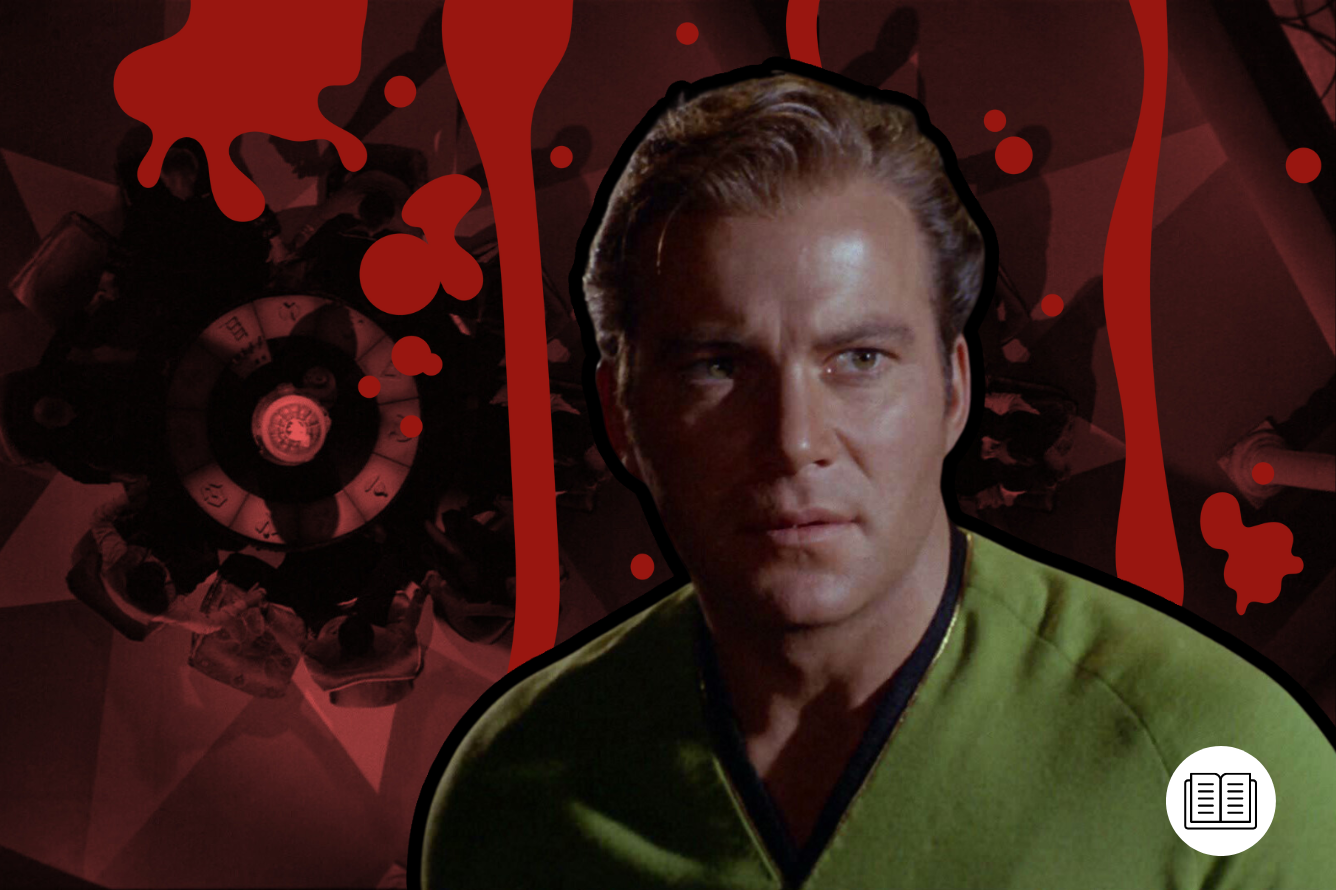
Living With Your Doppelganger
What sets ‘Second Chances’ aside from other Star Trek transporter accident episodes is that both Rikers are allowed to survive. This wasn’t the original intention, as the TNG writing team considered killing off Will and replacing him with Thomas. However, the choice to keep both men alive furthers the thematic resonance of the story.
In sending out Thomas Riker to re-establish his Starfleet career, ‘Second Chances’ sets him up to live in the shadow of his legendary doppelganger, Will. With Thomas gone, Will is able to suppress those doubts about his career decisions and his relationship with Deanna. For Thomas, however, things aren’t so easy.
All of us have a version of ourselves that we aspire to be, but we’re aware that often circumstances or our own self-sabotage can prevent us from becoming our idealized selves. Thankfully, none of us have the knowledge that our idealized self is out there saving human history from the Borg Collective or averting galactic destruction by closing a temporal anomaly.
It can’t be easy to make a name for yourself when you look and sound exactly like the guy who’s currently writing the next several chapters of the Starfleet history books. The pressure eventually becomes too much for Thomas, who abandons Starfleet for the Maquis in the Star Trek: Deep Space Nine episode ‘Defiant’ (S3, Ep9), deciding he can realize his ambitions another way.
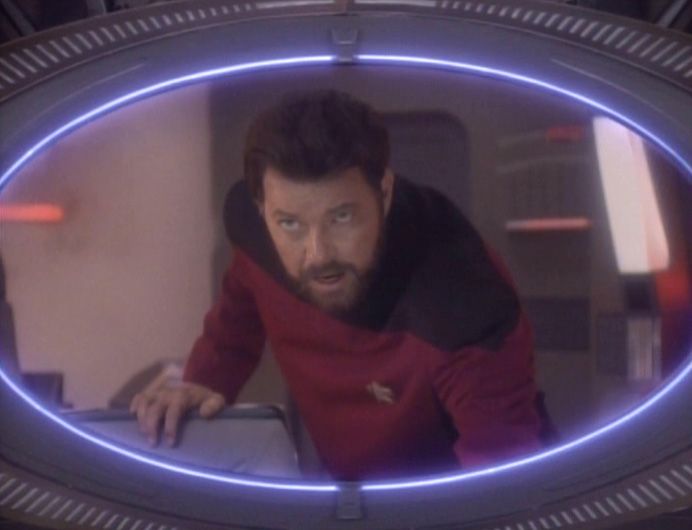
The decision to put Thomas in the Maquis brilliantly builds on the thematic questions at the heart of ‘Second Chances’. Thomas Riker takes on the role of a freedom fighter to regain his individuality, but also because both Rikers have a sense of justice. Of course the Thomas Riker who was in isolation for eight years has emerged to be horrified by the Federation’s appeasement of the Cardassian Union.
Picard notably disapproved of the Maquis’ tactics, sending Ensign Ro Laren (Michelle Forbes) to infiltrate the terrorist group to gain intel in ‘Preemptive Strike’ (S7, Ep24). When she defected, it was Will Riker who let her go. She may have had a phaser pointed at his chest, but Jonathan Frakes plays the scene with a modicum of sympathy for the cause. It implies that, deep down, there’s a Will Riker who, under different circumstances would join the Maquis. However, unlike Ro Laren, he would never betray Jean-Luc Picard to do so.
Thomas lived through those different circumstances, and with no loyalty to Picard, leaves Starfleet for the Maquis. He finally gets to make a name for himself, as a freedom fighter who struck a blow against the Cardassian Union. He ultimately ends up imprisoned, bound for another long stint of isolation, but he’s finally been able to regain his individuality and step out of the shadow of his other self.
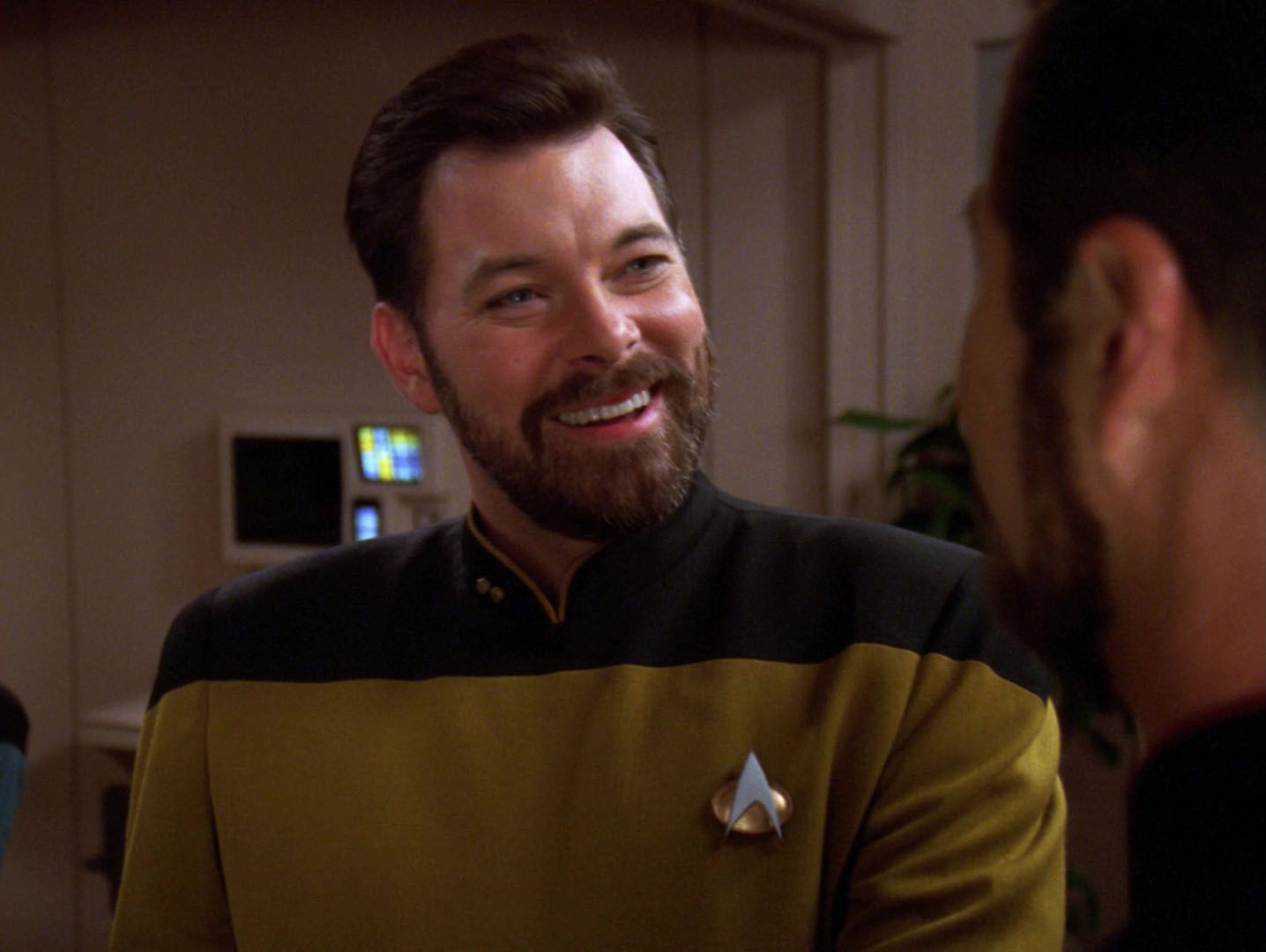
The story of Will and Thomas Riker is a uniquely Star Trek way of exploring the concept of regret and self-doubt. The concept of being able to converse with yourself about all your perceived failings is a chilling one, but the two Rikers teach us something about ourselves – that deep down, we’re all different people, all the time.
Will and Thomas remind us that we can be trombone players and freedom fighters, be attentive partners and ambitious careerists. It’s just that real life often gets in the way and stops us from being who we want to be. Sometimes, however, either by way of a freak transporter accident or by a career change (if joining a terrorist organization can be classed as a career change), we can get a second chance to realize the person we really want to be.
The cost of your membership has allowed us to mentor new writers and allowed us to reflect the diversity of voices within fandom. None of this is possible without you. Thank you. 🙂


